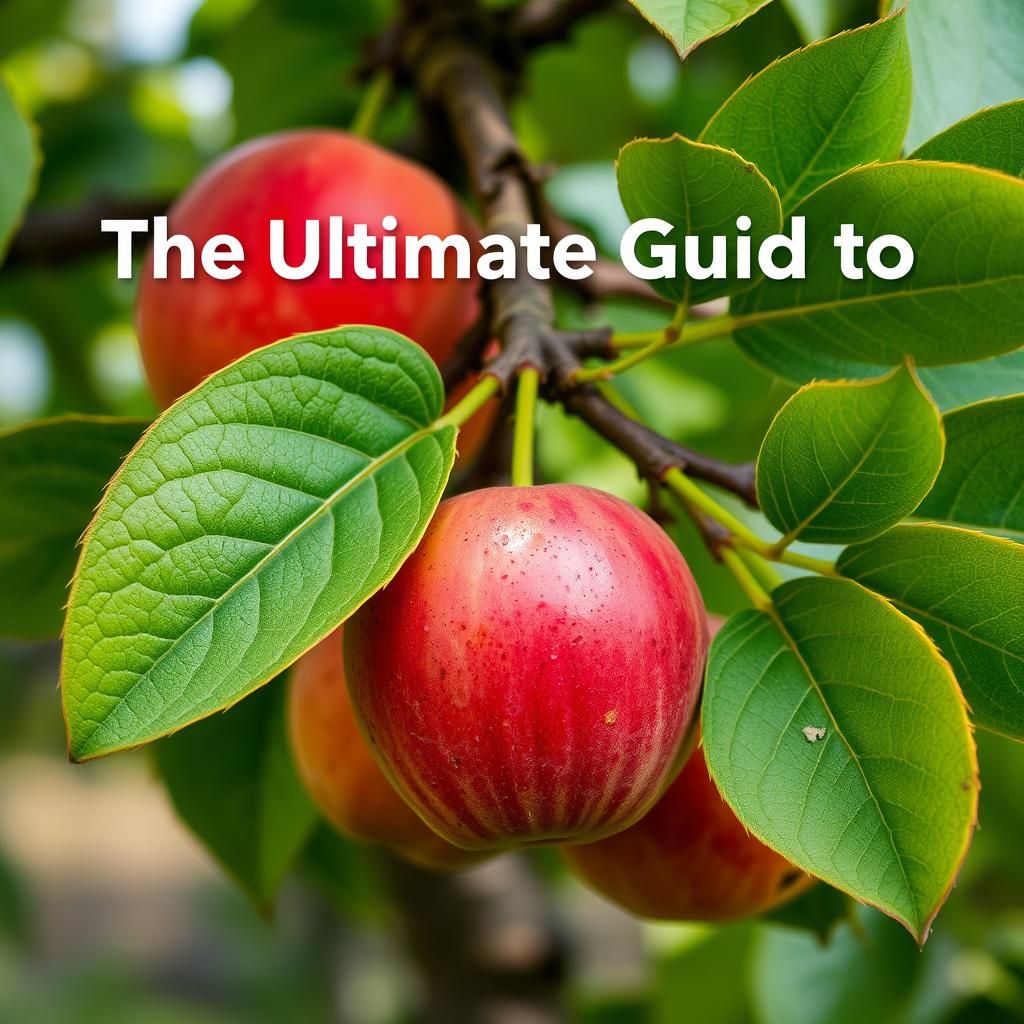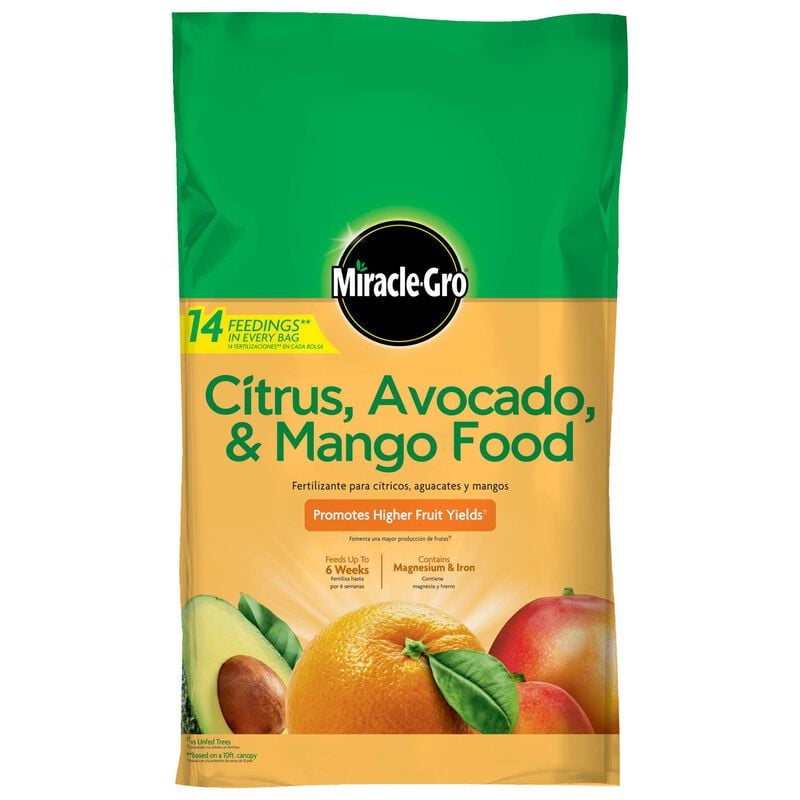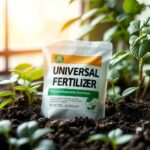The Ultimate Guide to Finding the Best Plant Food for Fruit Trees

When it comes to nurturing fruit trees, selecting the right plant food is crucial for achieving a bountiful harvest. With so many options available on the market, from organic choices to synthetic fertilizers, it can be overwhelming for gardeners to make an informed decision. This ultimate guide aims to simplify the process by outlining the essential nutrients fruit trees need, the benefits of various types of plant food, and expert tips for application. Whether you're a seasoned gardener or a beginner, understanding the nutritional requirements of your fruit trees will empower you to cultivate thriving, productive plants with vibrant fruits.
Choosing the Best Plant Food for Fruit Trees
To cultivate healthy and fruitful trees, understanding the importance of the right plant food is essential. The best plant food for fruit trees typically includes a balanced mix of nitrogen, phosphorus, and potassium, commonly referred to as N-P-K ratios. These nutrients work together to promote robust growth, enhance fruit quality, and improve overall tree health. Additionally, incorporating organic options like compost or manure can provide beneficial microorganisms to the soil, ensuring that fruit trees receive a steady supply of essential nutrients throughout their growing season. Regular soil testing can also help determine specific nutrient needs, allowing for tailored fertilization strategies to maximize fruit production.
Understanding N-P-K Ratios
The N-P-K ratio on fertilizer packaging indicates the percentage of nitrogen, phosphorus, and potassium present in the product. Nitrogen is vital for leaf and shoot growth, phosphorus promotes strong root development and flowering, while potassium aids in fruit quality and disease resistance. For most fruit trees, a balanced ratio such as 10-10-10 is ideal, but it may be necessary to adjust this based on the specific species and their growth stage.
Organic vs. Synthetic Fertilizers
Choosing between organic and synthetic fertilizers depends on personal preferences and gardening practices. Organic fertilizers, such as compost, bone meal, and fish emulsion, release nutrients slowly and improve soil health over time. Conversely, synthetic fertilizers provide immediate nutrient availability and can be easier to apply. It's crucial to consider the long-term impact on soil health and the environment when selecting a fertilization method for fruit trees.
When to Fertilize Your Fruit Trees
Timing is key in optimizing the effectiveness of plant food. Generally, the best times to fertilize fruit trees are in early spring before new growth begins and again in late summer after the fruit has been harvested. Applying fertilizer during these times supports the tree's growth cycle and ensures that nutrients are available when the trees need them most. However, avoid fertilizing late in the growing season, as this can encourage new growth that may not harden off before winter.
Additional Nutrients for Healthy Fruit Trees
While N-P-K is essential, fruit trees may also require additional nutrients like calcium, magnesium, and trace elements such as iron and zinc. These nutrients support various physiological functions, including photosynthesis and enzyme activity. Conducting a soil test can help determine any deficiencies, allowing for targeted amendments to ensure fruit trees thrive. Integrating products like dolomitic lime can help raise soil pH while providing magnesium, and using chelated micronutrients can address specific trace element shortages.
Watering Practices After Fertilization
Proper watering practices after applying plant food are crucial for nutrient uptake. Adequate moisture helps dissolve the fertilizer and facilitates the movement of nutrients into the root zone. It's recommended to water the trees thoroughly after applying any fertilizer to ensure that the nutrients are absorbed efficiently. Ensure the trees receive consistent watering throughout the growing season, especially during dry spells, to support their overall health and fruit production.
| Nutrient | Function |
|---|---|
| Nitrogen | Promotes leaf and shoot growth |
| Phosphorus | Enhances root development and flowering |
| Potassium | Aids in fruit quality and disease resistance |
| Calcium | Supports cell wall structure and growth |
| Magnesium | Essential for photosynthesis |
What is the best fertilizer for fruit trees?

The best fertilizer for fruit trees varies based on the specific needs of the tree species, soil quality, and climate. Generally, a balanced fertilizer with an N-P-K ratio of 10-10-10 or a higher potassium level (such as 5-10-10) is recommended to support healthy growth, flowering, and fruiting. Organic options, such as compost, manure, or bone meal, are also excellent choices as they improve soil health and provide essential nutrients slowly over time.
Choosing the Right N-P-K Ratio
When selecting a fertilizer, the N-P-K ratio (Nitrogen, Phosphorus, Potassium) is crucial as it indicates the nutrient composition.
- Nitrogen: Promotes healthy foliage growth.
- Phosphorus: Essential for flower and fruit development.
- Potassium: Supports overall tree vigor and disease resistance.
Organic vs. Synthetic Fertilizers
Choosing between organic and synthetic fertilizers can significantly influence the health of your fruit trees.
- Organic fertilizers: They improve soil structure and encourage beneficial microbes.
- Synthetic fertilizers: They offer immediate nutrient availability but may lead to soil degradation over time.
- Consider using a combination of both to achieve balanced nutrition.
Timing of Fertilization
The timing of fertilization is critical for optimal uptake by fruit trees.
- Early spring: Apply fertilizer before the active growing season to promote leaf and flower growth.
- Late summer: A second application can help trees store nutrients for winter dormancy.
- Avoid fertilizing in late fall as it can stimulate growth that is vulnerable to winter damage.
Soil Testing for Nutrient Needs
Conducting a soil test is essential to determine the nutrient content of the soil and any deficiencies present.
See also:
- pH level: Affects nutrient availability; most fruit trees prefer a pH between 6.0 and 7.0.
- Macronutrients: Assess levels of nitrogen, phosphorus, and potassium.
- Micronutrients: Identify any deficiencies that may impact tree health.
Application Methods
How you apply fertilizer can affect its effectiveness and the health of your trees.
- Broadcast method: Spread granular fertilizers evenly around the tree's drip line.
- Soil incorporation: Mix fertilizers into the soil for better absorption.
- Foliar feeding: Apply liquid fertilizers directly to the leaves for quick nutrient uptake.
What feed is best for fruit trees?

To determine what feed is best for fruit trees, understanding the specific nutritional needs of these trees is essential. Fruit trees require a balanced supply of macronutrients and micronutrients to thrive and produce high-quality fruit. The best feeds often include a mix of compost, fertilizers, and organic matter that cater to their particular growth stages.
Understanding Macronutrients
Fruit trees primarily need three essential macronutrients: nitrogen (N), phosphorus (P), and potassium (K). These nutrients play vital roles in various physiological processes.
- Nitrogen is critical for vigorous leaf and shoot growth.
- Phosphorus promotes root development, flowering, and fruiting, essential for overall tree health.
- Potassium enhances fruit quality and disease resistance.
Importance of Micronutrients
In addition to macronutrients, fruit trees also need several micronutrients in smaller quantities, such as iron, manganese, zinc, and boron. These elements are crucial for various enzymatic processes and overall tree health.
- Iron is essential for chlorophyll formation, influencing photosynthesis.
- Manganese aids in the metabolism of nitrogen and photosynthesis.
- Zinc is vital for growth regulation and fruit development.
Organic vs. Synthetic Fertilizers
Choosing between organic and synthetic fertilizers can impact the health of fruit trees. Organic fertilizers offer long-term benefits for soil health, while synthetic options may provide a quick nutrient boost.
- Organic fertilizers include compost, well-rotted manure, and bone meal, which improve soil structure and microbial activity.
- Synthetic fertilizers typically deliver nutrients rapidly, beneficial for quick fixes but may lead to soil degradation if overused.
- Consider using a combination of both for balanced nutrition and sustainability.
Timing and Application Methods
The timing of feeding is crucial for optimizing the growth and fruit production of fruit trees. Different application methods can also enhance nutrient uptake.
- Feed during early spring when trees begin active growth.
- Use a slow-release fertilizer to provide nutrients gradually throughout the growing season.
- Foliar feeding can deliver nutrients directly to the leaves for quick absorption.
Signs of Nutrient Deficiency
Regularly observing your fruit trees for signs of nutrient deficiency can help in adjusting their feeding schedule effectively.
- Yellowing leaves may indicate insufficient nitrogen.
- Stunted growth can signify a lack of phosphorus.
- Pale or small fruits may point to inadequate potassium levels.
What food is good for fruit trees?

To maintain healthy and productive fruit trees, it is essential to provide them with a well-balanced diet that includes various nutrients and organic materials. The best food for fruit trees typically consists of organic fertilizers, compost, and other nutrient-rich amendments that support their growth and fruit production. Here are some beneficial food options for fruit trees:
Organic Fertilizers
Organic fertilizers are made from natural materials and provide a slow release of nutrients, which is beneficial for the long-term health of fruit trees. Using organic fertilizers can enhance soil structure, improve nutrient availability, and stimulate beneficial microbial activity.
- Compost: A rich mixture of decomposed organic matter that improves soil fertility.
- Bone Meal: A source of phosphorus that encourages root development and flowering.
- Fish Emulsion: Provides a balanced supply of nitrogen for vigorous growth.
Soil Amendments
To improve soil quality and support healthy fruit tree growth, certain soil amendments can be added. These can provide critical nutrients and enhance soil aeration and drainage.
- Green Manure: Leguminous crops can be grown and tilled back into the soil to enrich it with nitrogen.
- Mulch: Organic materials like bark or straw conserve moisture and prevent weeds while gradually enriching the soil.
- Gypsum: Helps to improve soil structure by enhancing drainage and reducing compaction.
Microbial Inoculants
Adding microbial inoculants to the soil can support fruit tree health and nutrient uptake. These products introduce beneficial microorganisms that enhance soil fertility and plant growth.
See also:
- Mycorrhizal Fungi: Establish a symbiotic relationship with tree roots, improving phosphorus uptake and resilience.
- Bacterial Inoculants: Promote nutrient cycling, especially nitrogen, which is essential for tree vigor.
- Compost Tea: Liquid fertilizer made from steeped compost that enhances microbial activity in the soil.
Mineral Supplements
Mineral supplements can provide essential micronutrients that might be lacking in the soil and are vital for fruit trees' growth and fruit production.
- Zinc: Important for the synthesis of growth hormones and promotes flowering.
- Iron: Crucial for chlorophyll production and overall plant health, particularly in alkaline soils.
- Magnesium: Enhances photosynthesis and fruit quality by improving nutrient absorption.
Fruit Tree-Specific Nutrients
Different types of fruit trees have unique nutrient needs depending on their species and stage of growth. Understanding these requirements can help you tailor their diet effectively.
- Citrus Trees: Benefit from higher nitrogen and magnesium levels, particularly during active growth.
- Apple Trees: Require balanced nutrients, particularly nitrogen and potassium, for optimal fruit development.
- Stone Fruit Trees: Thrive with potassium-rich fertilizers to promote flowering and fruit set.
Is Miracle-Gro plant food good for fruit trees?

Miracle-Gro plant food is a popular choice among gardeners looking to enhance the growth and fruit production of various plants, including fruit trees. The formula typically contains a balanced ratio of essential nutrients such as nitrogen, phosphorus, and potassium, designed to foster strong growth. However, when it comes to using Miracle-Gro specifically for fruit trees, there are several factors to consider.
Understanding Nutrient Needs
Fruit trees have specific nutrient requirements that can vary based on their age, species, and environmental conditions. Miracle-Gro provides a quick-release form of plant food, which can benefit the trees during the growing season. Key nutrients include:
- Nitrogen: Promotes leaf and shoot growth, essential for young trees.
- Phosphorus: Crucial for root development and flowering, enhancing fruit set.
- Potassium: Supports overall tree health, strengthens cell walls, and improves fruit quality.
Frequency and Timing of Application
When using Miracle-Gro on fruit trees, timing and frequency of application are critical to avoid nutrient overload. It is generally recommended to fertilize:
- In Spring: When the tree begins active growth.
- After Flowering: To support fruit development.
- Every 4-6 Weeks: During the growing season, following package instructions.
Potential Risks of Over-fertilization
While Miracle-Gro can provide essential nutrients, over-fertilization poses risks that can harm fruit trees:
- Salt Buildup: Can damage roots and lead to reduced growth.
- Excessive Leaf Growth: May lead to fewer fruits as energy is diverted from fruit production.
- Environmental Impact: Runoff from over-fertilization can affect local ecosystems.
Alternative Fertilization Methods
For those looking for alternatives to Miracle-Gro, several natural and organic methods can also benefit fruit trees:
- Compost: Adds organic matter and nutrients to the soil.
- Bone Meal: A slow-release source of phosphorus for root development.
- Fish Emulsion: Provides nitrogen and micronutrients while improving soil health.
Specific Fruit Tree Considerations
Different types of fruit trees may react differently to Miracle-Gro:
- Citrus Trees: Often benefit from higher potassium levels found in specialized fertilizers.
- Stone Fruits: Require balanced nutrients, but high nitrogen can be counterproductive.
- Apple and Pear Trees: Typically respond well to a balanced fertilizer but watch for nitrogen overload.
Questions from Our Readers
What is the best plant food for fruit trees?
The best plant food for fruit trees typically contains a balanced mix of nitrogen, phosphorus, and potassium (N-P-K). Look for fertilizers with an N-P-K ratio like 10-10-10 or 5-10-10, as they promote healthy growth, flowering, and fruit production. Additionally, ensuring that the fertilizer includes essential micronutrients like calcium and magnesium can further enhance your trees' health.
When should I apply plant food to my fruit trees?
Plant food should generally be applied in early spring before the growing season begins, as this timing helps trees absorb nutrients effectively during their active growth period. For some fruit trees, a second application may be beneficial in mid-summer, especially if you notice signs of nutrient deficiency. Always follow the specific guidelines for the type of fruit tree you are growing.
How often should I fertilize my fruit trees?
Most fruit trees benefit from fertilization once or twice a year, with the most common practice being in the spring and possibly again in late summer. It's essential to monitor your trees for signs of nutrient deficiency and adjust the frequency of fertilization based on their specific needs and soil conditions.
Can I use organic plant food for my fruit trees?
Absolutely! Organic plant food is an excellent choice for fruit trees, as it improves soil health and promotes sustainable gardening practices. Look for organic options that contain ingredients like bone meal, compost, or fish emulsion, as these provide essential nutrients and enhance the microbial activity in the soil, leading to better overall tree health and fruit quality.
See also:

If you want to read more articles like The Ultimate Guide to Finding the Best Plant Food for Fruit Trees, we recommend you check out our Fertiliser category.
Leave a Reply
Related Articles